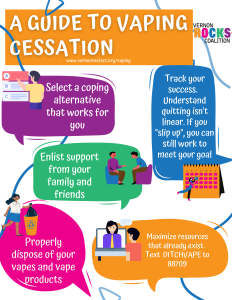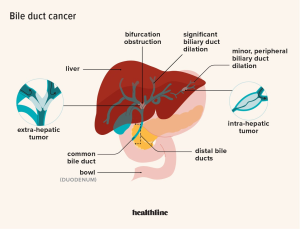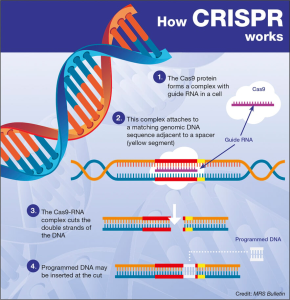
Public Health Research Grants play a crucial role in advancing the field of health sciences by providing essential funding for innovative studies aimed at improving community health outcomes. Researchers, like Karen Emmons and Jorge Chavarro, illustrate the tireless efforts involved in obtaining these federal research grants, which enable them to explore critical areas such as cancer prevention and nutrition’s impact on reproductive health. Unfortunately, recent funding freezes have underscored the vulnerabilities in health research funding, making it increasingly challenging for dedicated scientists to pursue vital public health studies. As the NIH grant application process becomes more competitive, researchers must diligently craft proposals that not only showcase innovative ideas but also underline their significance to societal health challenges. Ultimately, securing these grants represents more than mere financial support; it embodies the commitment to aiding communities and addressing urgent public health needs.
The domain of health research financing encompasses various forms of funding, particularly essential for conducting public health investigations. Terms like ‘federal research support’ and ‘health improvement grants’ reflect the significance of monetary aid in fostering discoveries in areas such as epidemiology and disease prevention. Researchers dedicated to public health must navigate the complexities of the grant proposal landscape, characterized by rigorous review processes and demanding compliance with funding requirements. The landscape is increasingly shaped by competition, emphasizing the need for groundbreaking and relevant project ideas. Ultimately, obtaining these financial resources is vital for scientists striving to implement groundbreaking solutions that can lead to healthier populations.
Understanding Federal Research Grants
Federal research grants are critical funding mechanisms that support scientific studies aimed at improving public health outcomes. These grants, often awarded by agencies such as the National Institutes of Health (NIH), enable researchers to carry out innovative projects that address pressing health concerns. For instance, grants may support initiatives focused on cancer research, nutrition, and mental health, enabling researchers to explore new treatments and preventive measures. The application process for these grants can be quite rigorous, requiring evidence of significant preliminary research and a well-detailed budget that justifies the need for funding.
Moreover, securing federal research grants is often seen as a hallmark of credibility within the scientific community. Researchers who can successfully obtain grants not only receive financial support but also gain recognition for their work. This recognition can lead to further opportunities in health research funding, collaboration with other institutions, and access to additional resources. Thus, for many researchers, the federal grant application process is not just a means to an end but a vital part of their professional development and contribution to science.
The NIH Grant Application Process Explained
The NIH grant application process is a multi-step procedure that necessitates careful planning and thorough preparation. Researchers must begin by formulating a specific aims page that outlines their research question, objectives, and the anticipated impact of their work. This component is crucial in showcasing the significance of the proposed study. After this initial stage, the full application is developed, often spanning over 100 pages of detailed scientific methodology, previous work, and ethical considerations. Emphasizing ethical treatment and understanding of human subjects is paramount, as demonstrated by the intricate guidelines that govern research involving people.
Once an application is submitted, it undergoes a rigorous review by Scientific Review Groups composed of experts in the relevant field. These groups assess proposals based on their innovation, significance, and approach, resulting in a competitive scoring system. The process ensures that only the most promising research projects receive funding, thus maintaining high standards in health research. Understanding and navigating the NIH grant application process is crucial for researchers aiming to secure essential funding for their studies, especially when addressing complex health issues like cancer and nutrition.
Challenges in Health Research Funding
The landscape of health research funding faces numerous challenges, particularly in light of recent federal budget cuts and funding freezes. For example, significant reductions in funding for cancer research and other health initiatives can hinder necessary studies aimed at improving public health. Researchers like Karen Emmons have felt the impact of these funding challenges firsthand, as they work tirelessly to secure adequate resources for their projects. Such disruptions not only stall individual studies but also have broader implications for public health advancement.
In addition, the increased cost of conducting high-quality research further complicates access to health research funding. As scientific inquiries become more sophisticated, the financial requirements associated with new technologies, diverse research teams, and extensive methodologies rise significantly. Researchers must creatively find ways to justify every line item in their budgets, often leading to rigorous negotiations and sometimes compromising their original research ambitions. Addressing these funding challenges is essential for fostering innovation and ensuring that important public health studies can proceed without interruption.
The Importance of Networking for Researchers
Networking plays a crucial role in the success of researchers seeking public health research grants. By building relationships with community partners, colleagues, and other scientists, researchers can gain valuable insights and collaborative opportunities that strengthen their proposals. Additionally, networking facilitates the sharing of resources and knowledge, allowing researchers to stay informed about emerging trends and potential funding sources. Establishing a robust professional network can greatly enhance a researcher’s ability to create impactful studies and secure necessary funding.
Furthermore, attending conferences, workshops, and seminars is an essential aspect of networking for health researchers. These venues provide opportunities to meet influential stakeholders, including funding agency representatives and experts in the field. Engaging in discussions, presenting findings, and receiving feedback are vital components of the research process that can inform future grant applications. For aspiring and established researchers alike, leveraging professional connections can be a significant catalyst in achieving funding success and advancing public health initiatives.
Maximizing Impact with Pilot Studies
Pilot studies serve as a crucial step for researchers before applying for formal grants, providing an opportunity to test hypotheses and gather preliminary data. In the context of public health research, pilot studies can help identify potential challenges, refine research questions, and demonstrate the feasibility of proposed studies. By showing that an idea holds merit and is worthy of further investigation, researchers can significantly strengthen their grant applications, increasing their chances of receiving funding.
Moreover, conducting pilot studies allows researchers to gather initial data that can inform their methodology and support their case when seeking public health research grants. Preliminary results can serve as a solid foundation for justifying a larger study, making it easier to persuade funding agencies of the potential impact and significance of the proposed work. As the competition for research funding becomes more intense, the ability to effectively leverage pilot studies can distinguish successful applicants from those who struggle to translate their innovative ideas into viable research projects.
Navigating the Budgeting Process for Grants
Budgeting is a critical aspect of the grant application process, requiring researchers to provide a detailed breakdown of how funds will be allocated. This includes justifying the need for equipment, personnel, and other resources necessary for conducting the proposed study. A well-prepared budget not only reflects the financial integrity of a research project but also demonstrates a thoughtful approach to resource management. For researchers competing for federal grants, clearly articulating the rationale behind each budget line can significantly increase their chances of securing funding.
In a landscape where research costs are rising, managing a budget becomes both an art and a science. As noted by researchers like Jorge Chavarro, accurately forecasting expenses and adjusting allocations to accommodate unexpected costs is essential for the success of even the most promising projects. Understanding the intricacies of budgeting can provide researchers with a strategic advantage in the competitive world of health research funding, allowing them to craft compelling arguments for the necessity of resources in their grant applications.
The Role of Funding Agencies in Research
Funding agencies, such as the NIH and various private foundations, play a pivotal role in shaping the research landscape by deciding which projects receive financial support. These organizations assess the potential impact of proposed studies and prioritize funding based on current public health needs and scientific advancements. In doing so, they significantly influence the direction of research in areas such as cancer, nutrition, and mental health, ensuring that resources are directed towards initiatives with the greatest potential for societal benefit.
Furthermore, funding agencies often provide essential resources beyond just financial support, such as mentorship programs, training workshops, and access to collaborative networks. Engaging effectively with these agencies can enhance a researcher’s prospects of receiving financing while also ensuring that their projects align with broader public health priorities. For researchers aiming to make a meaningful impact in their fields, understanding the role and expectations of funding agencies is instrumental in navigating the grant application process and achieving success.
Evaluating Research Outcomes
Evaluating research outcomes is a crucial aspect of the grant process, as funding agencies require evidence of the impact generated by funded projects. Researchers must meticulously track and report on their findings, demonstrating how their studies contribute to advancements in public health. This evaluation process serves not only to justify the initial investment of funding but also to inform ongoing research efforts, ensuring that insights gained from studies are disseminated effectively to the scientific community and the public at large.
Additionally, the evaluation of research outcomes can facilitate future funding opportunities. Successful projects that yield meaningful results often attract attention from additional funding sources, enhancing the sustainability of research initiatives. By maintaining transparency and rigor in reporting outcomes, researchers can foster trust with funding agencies and the public, underscoring the value of health research investment. Ultimately, thorough evaluation practices enable researchers to showcase the significance of their work and its potential to drive positive change in public health.
The Future of Public Health Research Funding
As public health challenges continue to evolve, the landscape for research funding is also shifting. With increased competition for limited resources, researchers must adapt their approaches to obtaining funding through innovative strategies and collaborations. Engaging with community partners and leveraging insights from multidisciplinary teams can lead to more robust research proposals that address pressing health issues effectively. Furthermore, advocacy for increased funding and policy support from governmental bodies is crucial to ensuring that public health research remains a priority.
Looking forward, the future of public health research funding will likely depend on the ability of researchers to demonstrate the tangible impact of their work on improving health outcomes. Initiatives that focus on prevention, health equity, and addressing social determinants of health will become increasingly important. As such, funding agencies may prioritize projects that align with these goals, underscoring the need for researchers to demonstrate how their studies contribute to broader societal objectives. By navigating these trends and effectively communicating the significance of their research, public health researchers can secure necessary funding to continue their important work.
Frequently Asked Questions
What are public health research grants and how can they benefit my research?
Public health research grants provide essential funding for studies aimed at improving health outcomes and addressing public health challenges. By applying for federal research grants, researchers can secure the financial support needed to explore innovative solutions, conduct meaningful studies, and ultimately make significant contributions to community health.
How does the NIH grant application process work for public health research?
The NIH grant application process for public health research begins with the development of a clear research proposal. Researchers must demonstrate the innovativeness of their idea while providing solid evidence and a detailed methodology. The application typically includes a specific aims page followed by a comprehensive narrative that outlines the research’s significance, approach, and budget, all of which are crucial for evaluation by Scientific Review Groups.
What types of funding are available for cancer research under federal research grants?
Federal research grants, particularly from the National Cancer Institute (NCI), provide specific funding opportunities aimed at cancer research. Programs like the R01 grant support investigator-initiated research projects that seek to advance understanding and treatment of cancer. Researchers must align their proposals with the NCI’s mission and demonstrate clear significance and innovation in their studies.
Why is it important to build community partnerships when applying for public health research funding?
Building community partnerships is vital when seeking public health research funding as it ensures that the research addresses real-world health challenges and that the study design is informed by community needs. Such collaborations can strengthen the grant proposal by showcasing the research’s relevance and potential impact, enhancing the likelihood of securing funding.
How can I improve my chances of receiving public health research grants?
To improve your chances of receiving public health research grants, focus on thoroughly preparing your application. This includes conducting preliminary studies, clearly defining your research aims, building strong collaborations, and providing a detailed budget justification. Engaging with the latest literature and trends in your area of research will also help ensure that your proposal stands out among competitors.
What are the common challenges faced in the public health research grant application process?
Common challenges in the public health research grant application process include navigating the complex requirements of funding agencies, managing the time-consuming preparation of detailed grant proposals, and facing competitive review processes with low success rates. Additionally, securing adequate funding for innovative research that reflects rising costs can be a significant hurdle.
What is the success rate for NIH public health research grants?
The success rate for NIH public health research grants varies by institute, but for major programs like the R01 grant, the recent success rate at the National Cancer Institute was about 14.6%. This statistic reflects the highly competitive nature of the grant process, emphasizing the importance of well-prepared proposals that demonstrate innovation and significance.
How does the federal research grant freeze impact public health studies?
A federal research grant freeze can significantly disrupt public health studies by halting critical research on health issues, delaying advancements in science, and impeding the development of solutions that benefit public health. Such freezes can undermine the long-term commitments of government and academic institutions to collaborative research aimed at improving health outcomes.
What should researchers focus on when drafting a budget for public health research funding?
When drafting a budget for public health research funding, researchers should ensure that every line item is justified and aligns with the study’s goals. It is critical to explain the necessity of each expense, including equipment, personnel, and supplies, to demonstrate to funding agencies that the resources requested are essential for the successful execution of the research project.
| Key Points | Details |
|---|---|
| Importance of Federal Grants | Securing federal grants is crucial for public health research development, allowing researchers to implement projects aimed at improving health outcomes. |
| Personal Achievements | Researchers like Karen Emmons cherish their first federal grant experiences, symbolizing significant milestones in their careers. |
| Impact of Political Decisions | Policy changes and funding freezes can severely disrupt critical research, as seen with the Trump administration’s actions towards Harvard’s funding. |
| Research Application Process | The grant application process is lengthy and rigorous, requiring comprehensive evidence of innovation, ethical considerations, and a detailed budget. |
| Review Process | Applications are evaluated by Scientific Review Groups, ensuring fairness and quality in the selection process for grants. |
| Success Rates | The funding success rate for applications, like the R01 grant at the National Cancer Institute, is notably low at 14.6% for 2023. |
| Long-term Benefits | Partnerships between public and private sectors support scientific advancements, improving public health and reducing healthcare costs. |
Summary
Public Health Research Grants are vital for advancing public health initiatives and scientific knowledge. The struggle to secure these grants highlights the dedication of researchers who aim to make a difference in health outcomes. Through rigorous application processes and a commitment to collaboration, researchers navigate challenges to ensure their work receives necessary funding. As discussed, the political landscape can impact grant availability significantly, indicating the importance of advocacy for continued support in health research. Ultimately, the pursuit of Public Health Research Grants not only propels individual careers but also fills crucial gaps in our understanding of health issues, translating into better community health outcomes.



